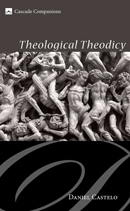The blogosphere is in hyperdrive over the Newtown tragedy. I’ve already weighed in once and am still thinking. How does one offer perspectives that very well may sound harsh and uncaring, but are meant as pastoral reflections? I shall try.
For a small town that prides itself on being warm and welcoming, to have such a violent act perpetrated on the defenseless innocent is unimaginable, yet, as numerous commenters have pointed out, children die violently, routinely, in various ways around the globe. Small help, this observation, but it is good to acknowledge it. No one is immune from risk, danger and disaster. No one.
Which gives the demanding tone in which people are asking the “Where was God” question a certain irony. It is inevitable that we ask the question, since we have been asking it for thousands of years. But we now ask it with a noticeable fierceness. I wonder if we don’t live with a certain naiveté about not only life expectancy, but quality-of-life expectancy that makes us psychologically and spiritually unprepared for tragedy. Why do we keep getting knocked off our pins?
Just to make it clear, I am not trying to say anything to lessen the grief or the outrage over multiple murders. Our sense of justice demands it. But the anger at God for not “doing something” to prevent it is another matter.
I’d like to recommend a slim and readable book, written by Daniel Castelo of Seattle Pacific University. If you’re not a scholar, don’t be put off by the title, Theological Theodicy. (The word ‘theodicy’ refers to trying to make sense of how a good and powerful God can permit evil to occur. A couple of possible answers: Maybe God is not all that powerful or good, some say. Or maybe we don’t understand evil. You get the idea.)
In slightly over a hundred pages, Castelo tackles this question, writing not only as a scholar, but as a fully committed Christian believer. He has skin in the game, so to speak. With a belief in an all-powerful, good, loving, God as his starting place, he gazes unblinkingly at The Problem.
The current tragedy reveals once again that Americans essentially have no workable moral categories available for thinking about such things. Chapter 3, titled “The Conflicted State of Creation,” gives readers categories, going beyond the therapeutic (the gunman was mentally ill) or legal (let’s have more gun control).
Then, Chapter 4 answers the “Where was God” question with full Christian conviction. God is right here. God knows full well, in God’s own being, the dereliction, the desolation, of human evil perpetrated on other humans. Castelo challenges us to deal with the question, Why did Jesus (have to) die? What does Jesus’ death have to do with Newtown? Read the chapter.
You may not like Castelo’s answers. But if you want a starting point, a way in to a problem that every one of us will face in some way and probably more than once in our lifetimes, even if (hopefully) not in such a shocking way, then you should read this book. Especially if you desire to act and speak graciously and faithfully as a Christian.


Pingback:Newtown | dctheology.org
Steve, thanks so much for the recommendation of this book. I downloaded and started reading it immediately and I think it will be very helpful. Especially in the writing that I want to pursue with the audience that I want to reach. Have a blessed Christmas.
Thank you, Martha.